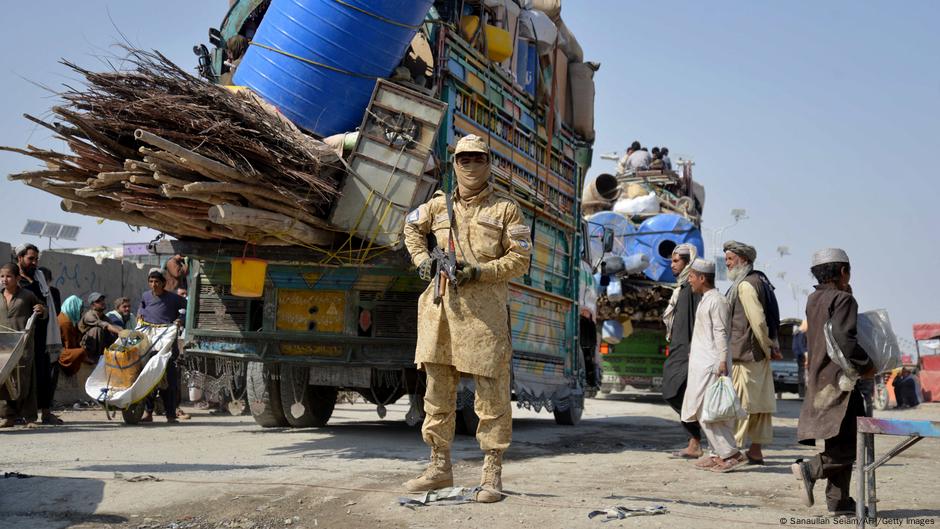In the wake of between the Taliban in and last month, Pakistani authorities have intensified their , including escalating police raids on Afghan-run shops and rented homes.
The escalation is felt far beyond border areas, spanning all the way to the capital, Islamabad, and nearby Rawalpindi. Landlords, fearing legal ramifications, have evicted Afghan renters or refused lease renewals, forcing families to find new homes.
Afghans living in Pakistan also face , a procedure that is costly, uncertain, and often subject to significant delays.
“We are in hiding, and our families are fragmented, unable to stay in one place due to the fear of arrest and police violence. Our businesses have come to a standstill, our children have dropped out of school, and we have no time to consider our next steps,” an Afghan citizen, who wished to stay anonymous, told DW.
‘This place is my home’
In the past two weeks, several Afghans who are well-settled in Pakistan reported that police were searching homes in different parts of Islamabad and Rawalpindi.
In addition to the raids and never-ending bureaucratic hurdles for those seeking to stay in Pakistan legally, the Pakistani police have now started making announcements in mosques, warning that anybody who helps Afghan migrants, including by letting them houses or stores, would be considered a criminal by the government.
Many urban Afghans have been shocked by this change in policy, since they have lived and worked in Pakistan for decades.
“I was born in Pakistan and completed my education here; this place is my home. We have built our lives and careers in this country, and I never imagined that the place that has given me everything would one day force me out. It’s truly heartbreaking, and we are shocked that this could happen to us,” 32-year-old engineer Abdullah Khan, told DW.
Islamabad sees Afghans as security risk amid conflict
The Pakistani government, however, insists that .
“For decades, we have welcomed Afghans into our country, but now it is essential for those residing here illegally to depart with dignity and respect,” Talal Chaudhry, a senior interior ministry official, told DW. Chaudhry added that “some Afghans are linked to militancy and drug-related crimes, and many are aiding these criminal activities.”
Afghan activist Aziz Gull, in turn, says migrants are being between Islamabad and .
“Afghans in Pakistan are peaceful people, and they are without a home,” he told DW. “Why would they pose a securitiy risk to the host country?”
“Afghans should not be used as pawns in the political tensions between the two governments,” he added.
Nowhere to go but parks?
Zahra Mosavi, an Afghan activist in Pakistan who is living in hiding and experienced detention by the Pakistani police, told DW that Pakistani landlords now “may face tax charges and financial fines” for renting homes or business to Afghans.
“After this decision, landlords have begun mistreating Afghan residents, even though they signed one-year leases with months left. Without recovering the security payments, they keep threatening Afghans to leave the premises every day. Some landlords have shut off power and gas supply to Afghan households,” Mosavi said.
Mosavi also warned that some families seek sanctuary in parks, with their situation growing ever more dire as temperatures drop.
Sardar Akhter, a landlord in one of Rawalpindi’s upscale housing societies, said he had not been aware that the government had a strict policy against accommodating Afghans. At the same time, he had to explain to the police that his tenants had left and that he had canceled their rental agreements.
“The police raided my house, and I assured them that we would not rent it out again. However, they are continuously monitoring our property,” he told DW.
Decades of accepting Afghan refugees
Pakistan has accommodated waves of refugees from neighboring Afghanistan for many decades, including the people fleeing from the Soviet invasion that lasted nearly ten years starting in late 1979.
More Afghan migrants fled the civil war in 1990s, the US-led invasion in 2001, the subsequent years of fighting and .
In recent years, however, .
According to the UN refugee agency UNHCR, over 1.5 million Afghans between the beginning of the campaign in 2023 and mid-October 2025.
The UNHCR also estimates that about three million Afghan nationals still reside in the country, with approximately 1.4 million holding proper documentation.
“UNHCR appreciates Pakistan’s generosity in hosting refugees for over 45 years amid its challenges. Pakistan has a proud history of hospitality, and it’s important to continue that tradition at this critical time, but we are concerned about the dire situations Afghans are facing in Pakistan,” Qaiser Khan Afridi, the UNHCR spokesperson in Pakistan, told DW.
Edited by: Darko Janjevic
The post Pakistan ramps up Afghan migrant crackdown after clashes appeared first on Deutsche Welle.




